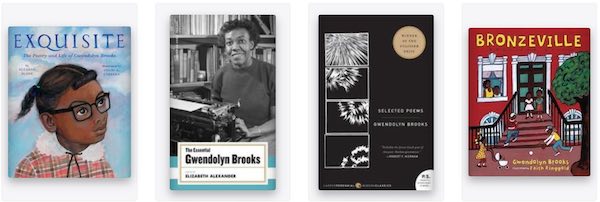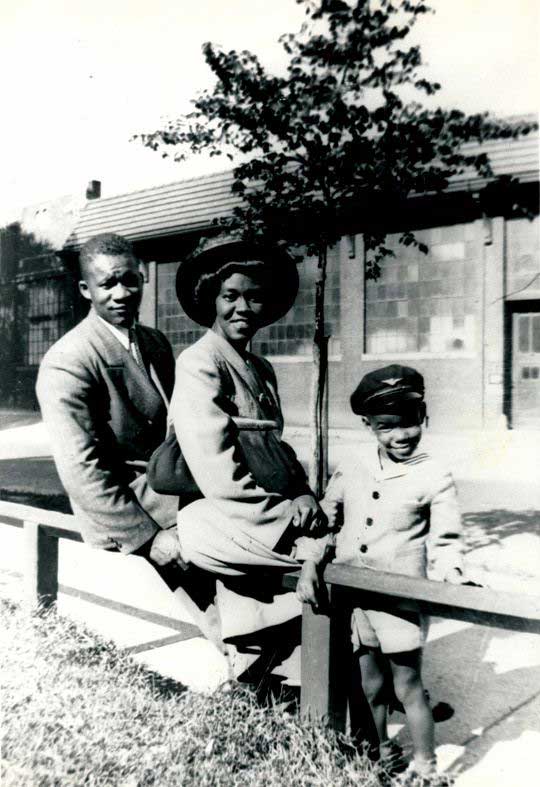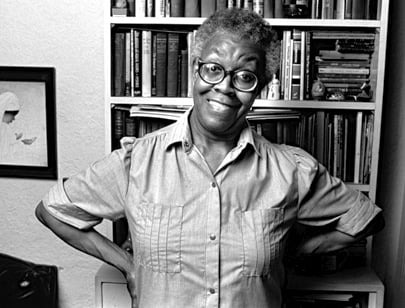5 Things to Love about Gwendolyn Brooks
By Nava Atlas | On August 17, 2017 | Updated November 18, 2022 | Comments (4)

Gwendolyn Brooks (1917 – 2000), a highly honored poet, broke new ground speaking to the black and female experience in America. Born in 1917 and raised in Chicago, there is much to celebrate about Gwendolyn Brooks, a truly iconic poet.
In 1945, she broke into book publishing with the well-received A Street in Bronzeville, referring to an area in the Chicago’s South Side. This collection led to numerous prestigious awards and a life in poetry.
Here are five things to love about Gwendolyn Brooks, a great American poet — and there are lots of other things to admire, so learn more about her and better yet, read her work!
She made poetry her life’s work
For many writers of of poetry, it’s an engaging sideline, but for Brooks, it was who she was and how she lived. She dedicated herself wholly to a life as a poet. She was only 13 when her first published poem, “Eventide,” appeared in American Childhood.
At age 17, she became a regular contributor to the iconic black newspaper, The Chicago Defender. For her first collection, the acclaimed A Street in Bronzeville, she used what she saw outside the window of her second-story apartment in Chicago as material.
From then on, she supported herself through readings, speaking appearances, teaching, and grants — all related to her poetry.
. . . . . . . . . .
She used her voice for social justice
From the time she started writing through her years of significant recognition, Brooks’ poetry spoke to and about the African-American experience in America. Her poems eloquently, forcefully, and sometimes angrily about social injustice and inequality; they asked for compassion for the poor.
Her poems illuminated the black experience of the 1940s and 1950s, and described the struggles of black women and oppressed communities, of loneliness, poverty, and loss. Her poetry influenced other poets of color to produce poetry that was forthright and honest.
. . . . . . . . . .
Gwendolyn Brooks Quotes on Writing and Life
. . . . . . . . . .
She won a Pulitzer and other significant awards
Brooks’ second collection of poems, Annie Allen (1949), led to her receiving a Guggenheim Fellowship. She won a Pulitzer Prize in 1950, making her the first African American to win this award. The Mecca (1968), a long poem, which was nominated for the National Book Award for Poetry. That same year, she was the Poet Laureate for the state of Illinois.
In 1976, Brooks became the first African-American woman to be elected to the National Institute of Arts and Letters. She received a Lifetime Achievement Award in 1989 by the National Endowment for the Arts.
There were other awards and honors as well — the point being that her absolute dedication to her craft led to significant recognition in her lifetime.
. . . . . . . . . . .

. . . . . . . . .
She was a consummate craftsperson of the written word
Poetry is often a free-form vehicle for articulating the human experience, but Brooks also took great pains with her craft. She studied various traditions of poetry, from African to European, and wrote many drafts until each poem was perfected.
Critic David Littlejohn admired her high degree of artistic control, and said of her work: “The words, lines, and arrangements have been worked and worked and worked again into poised exactness: the unexpected apt metaphor, the mock-colloquial asides amid jewelled phrases, the half-ironic repetitions—she knows it all.”
Her later works were ever more political, her style always was in sync with her poetic evolution. In the New York Times review of In the Mecca, Toni Cade Bambara wrote that Brooks’ poetry adopted “a new movement and energy, intensity, richness, power of statement and a new stripped lean, compressed style. A change of style prompted by a change of mind.”
. . . . . . . . . .

Gwendolyn Brooks: The Poet as Working Mother
. . . . . . . . . .
She encouraged young people and struggling writers
Encouraging young people was one of the joys of Brooks’ life. She gave readings at schools (as well as in hospitals and prisons), and was an enthusiastic promoter of an annual poetry competitions in Chicago.
She often paid for the awards out of her own pocket. She loved doing nice things for other people, often giving away money to people in need of funds trying to write. It was often noted that no matter how many accolades she received, she remained down to earth and that her life was defined by kindness to others.
. . . . . . . . . .

11 Iconic Poems by Gwendolyn Brooks

Thanks for sharing this great post. Much Appreciated! // Is there a website listing the winners chosen for her poetry competitions? // Am particularly interested in the ones chosen by the judges at Michigan State University in East Lansing, MI for the Gwendolyn Brooks Poetry Prize. // Thanks! // Stay Safe and Well and Keep Writing in my old home Wolverine State!
Thanks, Michael! As far as I can tell, the Gwendolyn Brooks Youth Poetry Awards originate in her home state of Illinois. Here’s the info, the next deadline is coming up very soon: https://www.ilhumanities.org/program/gwendolyn-brooks-youth-poetry-awards/
This helped me a lot for my project in reading such a great source. Thank You.
You’re very welcome, I’m glad you found it helpful!